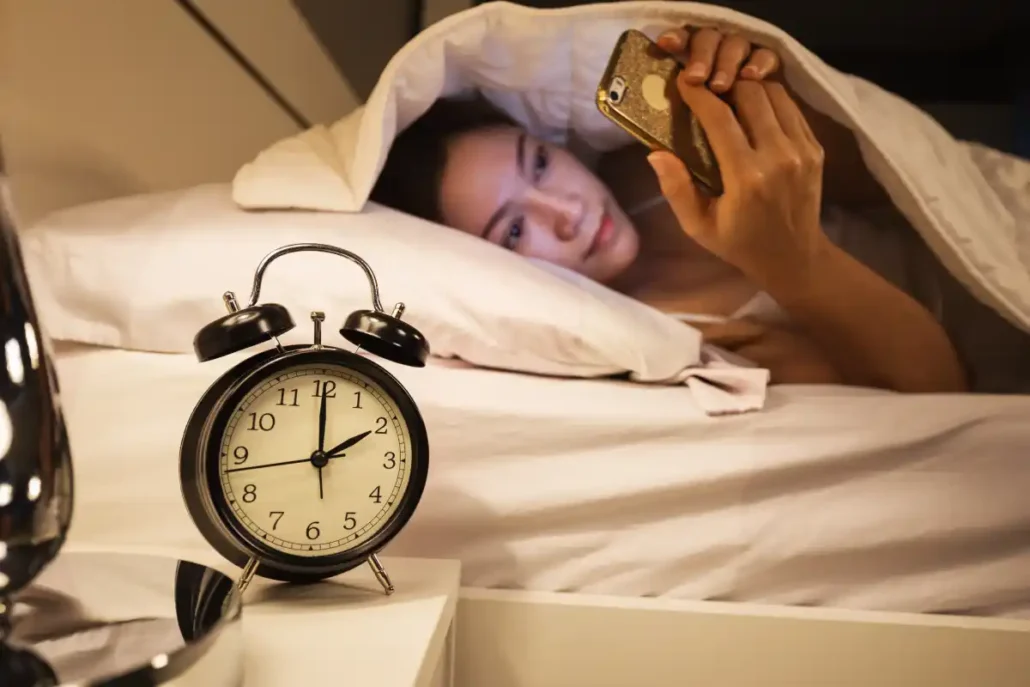
Remember all the antics and excuses you used as a kid to delay your bedtime? “Just 10 more minutes.” “I’ll go to bed as soon as this show is over.” “But I’m almost finished with this game.”
As it turns out, more and more of us are using the same stall tactics as adults. Now, it’s a phenomenon called revenge bedtime procrastination.
What Is Revenge Bedtime Procrastination?
Put simply, revenge bedtime procrastination is intentionally delaying your bedtime in favor of other things, like watching movies, scrolling social media, reading or spending time on a hobby.
Why Is It Called Revenge?
A deeper dive into this phenomenon suggests some profound emotional and psychological ties.
People who purposely put off going to sleep often do so because they feel like they lack control during the day. After 12 to 14 hours or more at the mercy of a packed work schedule, a long list of household chores (we’re talking to you, moms) and a calendar chock full of family commitments, they fight back for “me” time.
What’s Wrong with Wanting “Me” Time?
Nothing. It’s the timing that’s the issue.
A 2018 study published in Frontiers in Psychology found people have many pursuits they want to engage in every day – most commonly eating, media consumption and leisure activities. But we often skip out on those desires because our busy schedules won’t allow it.
The more activities people said they missed and the more times they resisted the temptation to do them throughout their waking hours, the more they purposely put off bedtime to try to fit it all in – even when they are tired.
“People use revenge bedtime procrastination to carve out some time at the end of the day when they feel in command, time to do what they wish they could have been doing during the day,” says registered nurse and BSC sleep expert Terry Cralle. “That’s the ‘revenge’ part of the equation. But by self-sabotaging their sleep, they’re ultimately taking that revenge out on themselves.”
How Common Is It?
Based on the number of recent medical research studies and increased amount of discussion on the topic, revenge bedtime procrastination appears to have become more prevalent since COVID-19 and has blurred the different parts of our days even more than usual.
Is It Really That Bad?
Though scrolling social media or catching up on your favorite TV show might seem like a good way to decompress after a long day, these mindless, nonproductive pastimes actually add to your stress and anxiety and even jeopardize your health when they cut into the restorative rest your brain and body need. The blue light from all your screens disrupts your biological clock, making your body think it should stay awake; you end up ruining your productivity the next day and perpetuating a cycle of fatigue.
Bottom line: It’s not something you want to become a habit.
How Can You Avoid It?
“It’s important to make time during the day for yourself, so you won’t be so tempted to undermine your sleep at night,” suggests Cralle. “Prioritize your health just like you would an important meeting or appointment.”
Do you think you’re a revenge bedtime procrastinator? If so, there are several healthy habits you can incorporate into your everyday life, so you can still get that quality “me” time and reduce the urge to stay up past your bedtime:
- Walk it off or do some yoga. Step away from your computer at lunch for a healthy meal, a walk or even gentle yoga. Even a short walk can positively impact sleep quality, can get your blood moving and help your body feel ready for sleep, while yoga can help relax the mind and body.
- Take breaks. Schedule a daily 15-minute break during your waking hours for light meditation or even a power nap.
- It’s all about “work-life balance.” If you’re working from home, try to wrap up your duties at a reasonable time, making a clear distinction between work life and your personal life.
- Consider setting a media curfew. Power down all of your screens (laptop, TV, phone) at least an hour before bedtime to avoid blue light stimulation that can keep you awake. You can even set a “bedtime alarm” to help remind you that it’s time to turn in.
- “No” can sometimes be the answer. It’s OK to say no. Don’t overcommit yourself for nonessential things. Delegate what you can to make more time for yourself. Find ways to share some of your burdens with family or friends.
- Schedule sufficient sleep. Get sufficient sleep every day of the week and use a bedtime alarm to help keep you from staying up past bedtime.
- Sufficient sleep provides “me” time. A well-rested person gets more done and does it better than a sleep-deprived person. Since sleep has numerous benefits for health, well-being and quality of life, you may just start considering it to be the ultimate “me” time.
Sources:
- https://www.bbc.com/worklife/article/20201123-the-psychology-behind-revenge-bedtime-procrastination
- https://www.frontiersin.org/articles/10.3389/fpsyg.2018.00252/full
- https://www.cnn.com/2021/02/15/health/revenge-bedtime-procrastination-wellness/index.html
- https://www.health.com/condition/sleep/revenge-bedtime-procrastination
This blog provides general information about sleep and sleep products. The words and other content provided in this blog, and in any linked materials, are not intended to replace a one-on-one relationship with a qualified healthcare professional. This blog should not be construed as medical advice or used to diagnose, treat, prevent or cure any disease or condition. If the reader or any other person has a medical concern, then he or she should consult with an appropriately licensed physician or other healthcare professional. This blog is not a substitute for professional medical advice, diagnosis or treatment, and should not be relied upon to make decisions about your health or the health of others. Never disregard professional medical advice or delay in seeking it because of something you have read on this blog or elsewhere on bettersleep.org. If you think you may have a medical emergency, then immediately call your doctor or dial 911.



